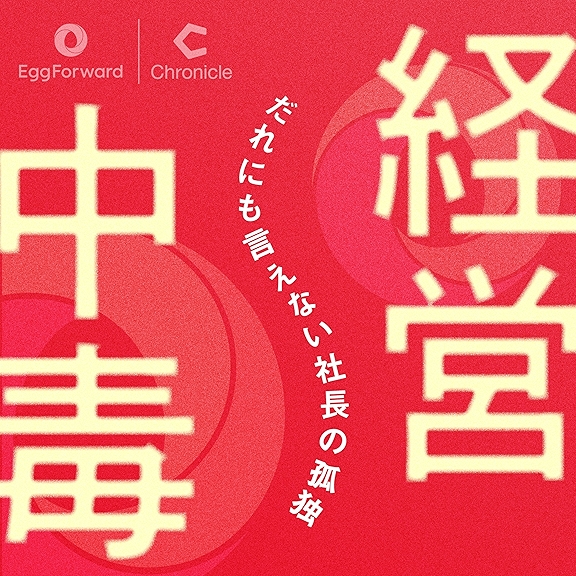Hear how telling each other stories helped us evolve
My audience knows how much I like to learn about early human evolution and how we continue to adapt to changing times. Thanks to my former PR guru, Sarah Wilson, I was introduced to Byron Reese, who is a futurist, an author and an entrepreneur. He tends to see things through that fresh lens I always talk about. Byron’s new book (his fourth) is called, Stories, Dice, and Rocks that Think: How Humans Learned to See the Future—and Shape It. This is a fascinating book that provides a new look at the history and destiny of humanity. Storytelling allows us to envision the future. Dice teach us about probability, which enables us to try to predict the future. And rocks that think—a reference to a computer’s CPU—enable us to build the future. Listen in!
Watch and listen to our conversation here
From our very beginnings, we've been a very different type of being.
I wasn’t quite sure what Byron's book is about until I opened the first pages and began to wander with him through the still unanswered questions about how humans became these amazing creatures with story-making minds, the ability to think and then converse about their ideas, and the wherewithall to develop cultures that we can share, change and believe to be our best realities.
As humans, the one thing we must do is see the future.
All other animals live in the moment. Perhaps some have evolved genetic capabilities that enable them to survive in different environments—like the 40,000 ant species that populate the world. But humans are one species,
and we know we have a past and a future. That future is important. We know we are not immortal. Do other animals plan for the afterlife? Develop religions? Think big philosophical thoughts? From our thinking came our language, and conversations that are essential to our being and our survival.
I invite you to listen in or read the transcript of our conversation because it's fascinatin. Just remember, you have a unique place on this earth. Treat it, and yourself, kindly.
If you'd like to connect with Byron, you can find him on LinkedIn, Twitter, Facebook and his website, and you can email him at byronreese@gmail.com.
For more about storytelling and how the future shapes us, start here
Blog: What Is Futurism And Do You Need It?
Blog: How Storytelling Can Transform Your Culture And Energize Your Team
Podcast: Now Is No Time To Be Afraid Of This Blurry Future
Additional resources for you
- My two award-winning books: Rethink: Smashing The Myths of Women in Business
and On the Brink: A Fresh Lens to Take Your Business to New Heights - Our website: Simon Associates Management Consultants
Read the transcript of our podcast here
Andi Simon: Welcome to On the Brink With Andi Simon. Hi, I'm Andi Simon. As you know, I'm your host and your guide, and my job is to get you off the brink. I want you to soar. But the only way you can do that is if you can see, feel and think in new ways so that you can change what you've been doing. The times are changing, and we're futurists. We need to see what's coming and begin to make stories up about them. That's what Simon Associates does. And that's about all the advertising I'm going to tell you about. Our job is to help you change. People hate to change.
Today, I found a marvelous, marvelous person who came to me through my PR firm of the past: Sarah Wilson. Byron Reese is amazing. Let me tell you about him and then he'll tell you about your new self. And I love his face. Byron is an Austin-based entrepreneur with a quarter century of experience building and running technology companies. It's gonna be interesting listening to how he's applied it in his new book today. The new book is called Stories, Dice, and Rocks that Think, and don't kid yourself: we're going to be talking a lot about how humans learn to see the future and shaping our conversation for today.
He's a recognized authority on AI, and holds a number of technology patents. He's also a futurist. Now, this podcast has been ranked among the top 20 futurists podcasts. I didn't know I was a futurist. But I like to help you see that future. And if you can't see it, you can't live today.
Byron gives talks around the globe about how technology is changing work, education and culture, like everything. And it's fun to think about it. He's an author of four books. But today, I think we're going to talk about this new one because it adds some dimension to all the others that he's put together. Byron, thank you for joining me today.
Byron Reese: Thank you for having me.
Andi Simon: It's so much fun to share with the listener, or the viewer. Who is Byron Reese? Give us your journey so we can talk about how you got here because everything had a little of the past, a little of the future, and a lot of hard work to come. Tell us about your book, Stories, Dice, and Rocks that Think. How did Byron come up with it?
Byron Reese: Well, I've always been in technology, because I've always been really interested in it. I'm not a gadget person, but I'm really interested in the idea of technology. And it's this thing we kind of discovered as a species that allows us to amplify what we're able to do without it. There was a time that we think we hit a genetic bottleneck a long time ago, and there were just 1,000 or 2,000 humans left and nobody would have bet on us then. And here we are. It's because we learned that trick about technology.
And so I've always just been really intrigued by the idea of technology. And so I've done that as a business. And then I started writing. Every morning before I got to work, I would just start writing and those became the books that I wrote. And they're just kind of my own journey of what I think about and I find interesting.
Andi Simon: Well, you don't sort of just stumble into being an AI or a patent expert in technology. Was this important as you were growing up, did you have particular role models or aha moments, or things that just started making you curious?
Byron Reese: I grew up on a farm in East Texas, outside of a town with only 500 people. So it was not an area steeped in technology. But my father had a corporate job for 30-something years, and his father worked in the railroad and his father operated a ferry. And when I looked back, it always seemed like they kind of did the thing that epitomized their times. It was the Western migration, and then the railroad, and then just the corporate thing that came up and unemployment and all of that, and I knew growing up that you could just tell it was technology.
And so I went to college and met my wife or the woman who would become my wife, and we moved to the Bay Area, to be a part of that energy that was in the 90s. And we did that for a while. And then when we decided to start a family, we moved back to Texas, to Austin, and we raised and homeschooled our children. And that's me.
Andi Simon: That's a very interesting story, your reflection on how each of your parents, grandparents, and so forth, was reflecting the times in which they were living. You in some ways are reflecting the times that we're living in now, which I would not have thought about, but if the listener or viewer is listening and watching: think about it. Where are you now because of where we are now as a society?
This book, though, has a particular purpose. And I think it would be good to talk about, it's not a textbook, it is a history of humankind in a very important way, which should give the listener and the viewer some time to think about the times that we are in. Because somehow, 50,000 years ago, we had a quantum leap in our brain. And we are just like any other animal. Remember, we are one species, there are 40,000 different ant species. That's how they have mutated and populated the world. We're just one.
And we probably can be intimate with anyone across the globe, which is sort of an interesting phenomenon. But we also can see the future and anticipate our mortality, and look back on the past and worry about our memory. Was it right? Was it wrong? And was it different than what actually happened? So we are an interesting human. Let's talk about Byron. How did this book begin to develop? And let us talk about the three phases that so fascinated you.
Byron Reese: They're very interested in the question of why. Why we're different from animals, because you'll always hear: we're just another animal. But when you look around the world, it doesn't look that way. It really looks like we're aliens. And everything else is kind of native. But we're very different in our cities and literature and all that. And we really got curious why that happened.
And the short answer is, we believe in two things that don't exist. We believe in the future and the past. And animals don't. That's a contentious statement, but I try to justify it in the book. And what we do is, we have what's known as episodic memory, where we remember specific things that happened to us, which animals don't. They don't make predictions into the future, maybe just a minute into the future. Maybe I'm thinking, Okay, I want to climb that tree and get an apple. What's the best way to do it? Those sorts of things.
And those were, I think, the first stories we told ourselves. They were in fiction, they were like us. We think that way. We kind of picture these different things, very different from other creatures. The coolest thing I learned writing this book is probably that it was a creature that lived before it's called Homo Erectus. And Erectus lived on this planet 1.6 million years, 80,000 generations, and simply had one tool: the hand axe. It looks like a big arrowhead. And that's it. And no matter when you find these, on which of three continents you find them, they're all alike.
And that's really mysterious because you would think if in 80,000 generations, everybody was just copying their parents, then eventually they would, like the telephone game, they would just change and in different regions, but they didn't. They're all identical. And what does that mean? It means Erectus didn't know they were making those tools, the way a bird doesn't know they're building a nest, they just do it. But it isn't something that they know how to do. It's not a cultural object, or technological object, it's a genetic object. You see a beaver, if you put a recording of music, of running water in the middle of the field, and a beaver walks by the dam over it, they don't really know what they're doing, but they know how to build that one dam.
So, you think about that: 80,000 generations where nothing happened. And then you think about us. We only took three generations to get from Kitty Hawk to the moon. And you realize we are a very different thing. And I kind of think it's this for millions of years, billions of years: the only place we had to write down what we learned was in our DNA. It took millions of years to write one new thing. And then one day, we got what you talked about: language, 40,000-50,000 years ago, and all of a sudden we can think and that's really the power of language. It organizes your thoughts. It's not mere speculation. There's a wonderful quote in the book from Helen Keller, who talked about what her life was like before her teacher came and how she didn't know she was a person. She didn't know she was a discrete thing in the universe. So we got language.
Andi Simon: Listen for a second, because I think that for my audience, I know that this is a curious question. We were able to sync and not necessarily communicate our thoughts. And I think that when you are walking in the woods, and there's nobody to talk to, but you're thinking, and you're doing just what our ancestors were doing, then the question always is, and I was fascinated by your effort to try and explain how did that happen, where all of a sudden we went from our thoughts to be able to share our thoughts. And how would they know what those words meant? And was there a quantum leap in the DNA of everyone at the time to be able to understand language? We have, you know, different languages, but they're all very similar in structure. Is it part of our acquired DNA? I mean, this is not simple stuff, because it's really quite interesting about how we took the thinking and turned it into a conversation that you and I can understand each other's meaning.
Byron Reese: Yes, absolutely. And of course, we have to speculate a little. And so there's four or five different ideas on how that could have happened. I tend to believe that there was a mutation that happened in one person one time, you know, on some Tuesday morning at 8:30, or something like that happened, that his or her progeny may have inherited. And that's the capacity to think.
In language, you see, we don't really have any organs for language. We have to repurpose organs we use for other stuff to be able to do this. And if in fact, language did begin in just one person, in one of these little lonely bands of 100-150 people, then after a few generations, when it had spread among them, they would be superheroes, and they would have superpowers, and they would very quickly displace everything else that didn't have capacity for language. And that's why it looks like it appeared everywhere, all at once. But I think that's what must have happened because human universals. There are a couple of hundreds of these things that all human cultures have.
Andi Simon: Yes. Now, the interesting part is, I got fascinated by the cave art, that all of a sudden, we went from no cave. Africa has practically nothing that looks like the European or the Asian cave art that came at a period of time. And it's not stick figures. And even in the Americas, there's amazing art that all of a sudden emerges at once. And we say, How did that happen? You know, your point is that an alien is not so crazy.
Talk to us about art, about music, about the flute, the things that emerge and seem to say something about who those people were, who created it, and how they shared something that was difficult to share across continents of that time. And all sudden it all at once. Even getting to Australia. I mean, there's something there worth sharing, more than just reading the book, because I love those stories. That's what makes me go, Oh, how did that happen? What happened? And how did it happen?
Byron Reese: You're right, there were no precursors of anything like representative art. And if you look at some of these caves, they are beautiful. I mean, it's just beautiful. I would frame that and hang it on my wall. But the thing to keep in mind is, it wasn't just that they could do that beautifully. It was high tech, like literally, because they were using fat to make the pigments and here they weren't using the power to extend them. For black, they could have used charcoal. They had charcoal in the fire 20 feet away. But it wasn't black enough evidently. And so they figured out a new way to make black pigment using a mineral they had to heat 1200 degrees, which was hard to do and the closest source was 240 miles away.
So they had to be mindful enough to go. They had to build scaffolding too and then to your point, digging in those caves in Chile is amazing because it's like King Tut's tomb. It was sealed off and we found it and the footprints, like a boy and his dog or sand, like in the kitchen. But when you excavate those times, you're right, we find musical instruments. The oldest ones we have at the exact same time, and we find the representative art at the exact same time. So whatever gave us language, I think really did a lot more than that. I mean, it made us, and your remark about aliens, I think might be a reference to something in the book where every time I mentioned this to people, they would obviously have bet it's aliens. And it isn't that people think it's aliens, but it is so dramatic and invites something like that.
Andi Simon: That makes you ask how, and the problem is, we want answers. And the problem is, we don't have any. And then there were the Neanderthals and Denisovans, and others who looked similar but didn't survive the same way. We still have our DNA, they have their DNA. And so, you know, they were there. But it's a really interesting set of questions.
So your point about our ancestors having a DNA that allowed them to produce the same tool everywhere they were, and then humans began to create variety and tremendous ingenuity across the globe. However, we expanded, and then came the Middle Ages and something transformative developed. And I think I'd like to move on a little bit. I mean, that's a lot of time to go from the starting point to major transformation. But I don't care if it's Michelangelo or anybody else in 1716 or 1617: something happened that changed us. Probability theory? What happened?
Byron Reese: What happened is, we got this capacity for language, which we then use to imagine these stories that were very mundane. They were just moments ahead. And later, we started articulating them. But once we could imagine the future, we weren't content with that. We're not a particularly contented species. And we weren't competing with that. And we didn't want to just leave the picture, we wanted to know what was going to happen. We wanted to predict it. And that seems like a tall order. But that's what happened.
And we, in 1654, these two men, de Fermat and Pascal are writing these letters, they're trying to solve this math problem that is trivially simple. I won't even bore you with it, other than to say, a 10-year-old could solve it. And this is a math problem. The great minds of Europe had worked on it for 100 years. And they needed a new way to think about the future. And that's what they did. And they did it: probability theory. And then, man, it just all happened, you had the first probability textbook within eight years. And the whole modern world, artificial intelligence is just probability theory. High speed, like, it's all, that's what it is, we invented that.
And the reason it took so long is because we had to figure out why the future happened the way it did. I mean, a futurist is really that people try to understand why the future unfolded this way, not that way, if I may have a visual aid. There were all different theories on why things happened the way they did. They were destined to happen, and they were fated to happen. Or they can only happen that way.
Andi Simon: Or we don't have a clue.
Byron Reese: What they never guessed was this: So this is probably something you may have seen at a science museum before. This is a paper full of BBs, I'm about to flip it. And when I do that, the BBs are gonna fold down and they're gonna hit these things. And they can bounce to the left, to the right, and then they'll hit another one. They can bounce to the left or the right, left to the right. And what happens is, every time you do it, you get a normal curve. You can do this all day long. And this is the thing nobody ever imagined was in randomness.
Even to this day, if you were to ask me, If you flipped the coin 1000 times, how many times will heads come up? I know how to answer that: 500. But I mean, I've never done it. And I didn't know how to answer it. I would have said, who knows, maybe 100. And then the next time 908, 105, 100. But the chances that it's ever under 400, or more than 600, or one in many billions. It's never happened, it never will happen.
And so you think about the most random thing: imagine a coin toss that you can say something that confident about it. And that's the basis of probability theory: you can assign probabilities to things in the future.
Andi Simon: I love reading Martin Seligman, his work on humble perspectives. And as I often work with my clients, I tell them that if you want to live today, you have to have some visualization of what tomorrow is gonna bring. Because if not, we will have a very difficult time. You can do the habits of yesterday. We're very happy with them, and comfortable with our habits. But tomorrow isn't going to be like yesterday and may move slowly or quickly.
I mean, the pandemic was so catalytic because it showed everybody how in a moment, everything can change, and without any control or decision-making or probability...although I suspect some people have had a probability theory that that was going to happen. But it is an interesting phenomenon for humans because we need to know what's coming in order for us to prepare for it by living now.
The past has given us experiential, but we only remember parts of that, not every memory. And if you talk to people about what happened on X day, when we were all together, they each have a different story. And the creativity is that they fit the story into their own stories. And so the story reflects them. They're all the heroes in it, but not really necessarily what the truth is. My favorite quote is, "The only truth is there is no truth."
And so then we begin to think about what came out of then, a great creativity there, and then came along your computers and the modern age, more or less, whatever is going on now. And what's coming into the future. Mr. Futurist? What do you see coming? And how are you getting folks to prepare for the uncertainties that are coming next? What do you see happening?
Byron Reese: When we got our cognitive eye opening, remember earlier I talked about the only place we had to write things was in our DNA? Well, suddenly, we had a new place. We could write stuff. We could write it in our DNA, but we could also write it just in our head. And that became our DNA. Instead of taking 100,000 years to learn not to eat the purple berries, I could just say, Hey, man, don't eat those purple berries, they'll make you sick. And that's it. That's it, that was a mutation about to spread. Everybody can say, Those purple berries are bad.
Well, there's an old essay called iPad that was written seven years ago, where a guy points out, Nobody knows how to make a pencil. There's not a person alive who knows every step of making every part of the pencil, and yet pencils get made, even though nobody knows how to make it.
So what has happened in the computer age is, we now know that with writing and computers, the human story is that people will learn stuff, and then they die. And then it's forgotten. Then somebody else comes along, learns something, and then they die, and it's forgotten. Or maybe they told somebody but then they messed it up. And our whole species just kind of resets every generation, a few things filter down but for most things are forgotten.
And I think that's what's really going to change is that, I'm gonna have a toothbrush that will tell me if I've got the flu virus in my mouth. And I mean, I want that toothbrush, and it will collect data. And I will have the spoon that will tell me the nutrition of every bite I have. That's collecting data, right? And so it can tell me, Oh, you're not getting enough, whatever. And one after the other. And I think that's kind of what we're building.
When we just had probability theory, we basically had paper and pencils, and cycles. That was it. And so between 1654, when we invented probability, to 1954, the world we built, we built with paper. And now, we said, We want to do this, like, on a massive scale, even beyond our own ability. So I think that's what we do. We're collecting evermore data. And we're going to use that data to record the life experiences of everybody, and use those to make everybody else's life better. So that in the future, everyone will be wiser than anyone who's ever lived because everyone will have at least access to this knowledge base.
In the book, I guess, all these examples of things that we couldn't have seen in the day, like iodine and salt, because so people wouldn't get goiter. But they didn't know this whole country had an iodine deficiency. And when they measured the average IQ, it went up four points and in some parts of the country, went up 15 points from that one thing in the south, which had a corn based diet, there was niacin deficiency, and we started fortifying corn flakes with niacin. And then that went away. And then we used to put stuff in things like lead. Lead paint and lead constantly and we didn't know, there just wasn't any data.
There was no such thing as data before for 16 people. It didn't exist. Why would it? What would you have ever done with data for 16 people? And now, if we had handled the data, you would have been able to see all that stuff in that data. And that is a speculation. I mean, there's an antidepressant called Wellbutrin that after some number of years of being used, some people said, you know, my cravings for cigarettes went down. They studied and they found out, Wow, that's a smoking cessation drug. Very good. They repackaged it down, and, and so forth.
So there's everything in the data. But we don't yet have the tools. We have the computers to do it now, like we have processor power. But we don't really have the tools to cope with the kinds of datasets that are being automatically built to try to build this knowledge base.
Andi Simon: For a number of years, I taught a course for the Society for Healthcare Strategy and Market Development, and it was called Your Data's Talking to You, Can You Hear It?, because healthcare strategists had an abundance of data points. I'm an anthropologist. Anthropologists are taught early that out of context, data do not exist. And consequently, that abundance of stuff needed to be turned into a story.
And I work with them on, Which story are you going to tell to the leadership of your organization, to the middle management, to the physicians? How are you going to craft those data points so one size doesn't fit anyone, because the first thing that doctors start to do is delete your data. The data is wrong. It's the way you crafted a story, using the data to help you see, feel and think about that in a different fashion.
And Byron is right, because you know, the computers can't think, maybe they're getting there, but they can't. They can accumulate all of this data, but they can't really interpret it, or craft a story for you. So our uniqueness takes us back to the beginning of our conversation. Think. And if we can think with better insights to what's happening, what could we think about that could be transformative about our society?
You know, he writes about education and culture, and it works well, like everything. And how do we think about coming out of pandemic time in a way that gives us an amazing opportunity. I always tell people, Don't waste a crisis. Humans hate to change. The amygdala loves to hijack new ideas. The cortisol comes flying out the minute there's something new. So as you're listening to us, I bet you're saying, Oh, no, and I'm saying, Yes. And begin to think through what's possible. You know, Byron, we’ve had such a good time, but I think it's time we wrap up a couple of things you don't want our listeners to forget.
Byron Reese: The book has one of the purposes of stories, which I accumulated over a couple of years, just reading storybooks. When I was working on this book, I would write it in the mornings, but in the evenings, I read storybooks. And I would just try to figure out what purpose is the story serving, and I think I came up with 20. But if you read the epilogue, one page long, there is a secret 21st purpose that is the biggest one of all when it's the stories that give life meaning.
And there's these two different narratives of our lives. One is that, you know, we're just kind of like big bags of chemicals and electrical impulses that careened through space and bumped into other big bags. And then we fizzle out and are forgotten. That's a story and it robs everything of any meaning permanently.
But there's another one that says that your life is not that. All life has inherent worth. And that your life is not a domino rally of minute after minute after minute after minute, but that all of the moments of your life are kind of connected in a sequence that tells a story. And can I close the book by asking, who is telling that story?
Andi Simon: Well, in that you're leading to something real important, I'm gonna put the book up again soo the folks can see. There we go: Stories, Dice, and Rocks that Think. And it's how humans learn to see the future and shape it. And I think that, from my perspective, what I would like our listeners to walk away with other than to go by the book, is reading with this open mind and being curious. I think it's our curiosity that has become so essential for us to see things through a fresh lens, and to begin to understand.
If I hadn't worked with company after company that get stuck or stalled, I'd say to you, Piece of cake, the times have changed, we just adapt. But humans are so convinced that what they do today is the way we should do it, that they forget that we would have never done it that way over all of these centuries. You know, maybe Homo Erectus did the same things with this Chilean tool exactly the same way because it was DNA driven.
But for us, we're creators, and we're story makers. And as we listen to each other's stories that capture the insights that come, and begin to see your own life with different purpose and different opportunity, the one thing that we often say in here is that we are mortal. We know that. And that changes the dynamics. Does my dog know to live everyday in the moment? People say, Live in the moment. It's hard to do that because we can see what's coming, even if we're not sure. So where should they buy your book, Byron?
Byron Reese: All of the usual places.
Andi Simon: And if you buy it on Amazon and like to write reviews, it is a great place to put in a little. It's a great book. And I think you're going to enjoy reading it and reflecting on our own next step. Because if you spent the past year thinking about the future, and the future is here for us to create. And I do think that it's a time of great creativity, and don't waste a crisis because it's a time for you to think in new ways. Thank you. Do you also speak and consult? Are there other things that you can offer our listeners?
Byron Reese: Yes, I do. I speak when I'm invited. And that's most of what I do. I'm writing another book, which is due in 33 days, because I've got a big countdown clock on my mantle.
Andi Simon: I’m laughing because I could look to November 1. I thank you





















